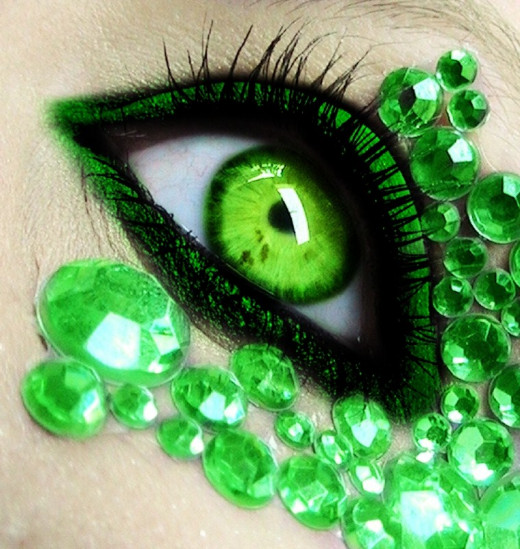Scorned: Love Kills or is it a case of the green- eyed monster?
They say a Picture is worth a thousand words~!



The green eyed Monsters distinguishing the two
Many of us have heard the term "the green-eyed monster" it was used to describe someone suffering from jealousy or envy. You would even hear someone say, "Oh, she's green with envy!" You laugh it off not realizing what dangers are potentially lying ahead of you. From a psychology standpoint jealousy and envy are gravely different in how they are defined most psychologist believe that there are so many more facets to understanding jealousy and envy and its various variants.There are many ways of examining jealousy and envy one is the mental state it leaves the people in, meaning how does it make the person feel. This is a seemingly easy way of exploring jealousy and envy.
In another book another psychologist states how jealousy and envy it is often easy to determine to what extent something is an issue of jealousy or even how much resentment, envy, or vengefulness play into the situation. Most often the expert says that these words are used interchangeably and do rather seem to flow into one another quite well. He warns however that behind these aggressive affects lurks giant forces such as humilation, shame, and even outer and still more inner condemnation hints of guilt. I remember being in a pastoral care group setting and we spoke of the double-sidedness of guilt, where guilt can be responsible for pushing you do to do great things yet also can be responsible for some terrible sorrows in your life. Now in understanding jealousy he says, "In jealousy I feel: I am the one who has been excluded from love. I am standing outside of an intimate relationship that is particularly precious to me. Behind jealousy, there is always a sense of loss, and with that, acute pain and sadness, but also a feeling of humiliation and shame."
His explanation is this "I am the excluded third and want to be the excluding first instead, or it implies, I am excluded from belonging to a larger community, and my pain and shame are so strong that I want to hurl myself against this exclusion but feel helpless to do anything about it." He warns then that very easily this warrants the individual to seek revenge or hungers the desire for venge or their own vindication. The sad part is he says that all of this goes on unconsciously.
He says, "Jealousy is a passion that assiduously searches for what creates suffering according to the philosopher Schleiermacher (Buchmann,1965). In Envy, he says the individual says, "The other has more, is better and more respected than I am, and I feel inferior and therefore humiliated. I want to take away and destroy the good he has and is." Also shame always lies behind envy, even much more so than is the case in jealousy.
Stanford Encyclopedia of Philosophy differiates between jealousy and envy as, "Ordinary language tends to conflate envy and jealousy. The philosophical consensus is that these are distinct emotions.[2] While it is linguistically acceptable to say that one is jealous upon hearing about another's vacation, say, it has been plausibly argued that one is feeling envy, if either, in such a case. Both envy and jealousy are three-place relations; but this superficial similarity conceals an important difference.
Jealousy involves three parties, the subject, the rival, and the beloved; and the jealous person's real locus of concern is the beloved—the person whose affection he is losing or fears losing—not his rival. Whereas envy is a two party relation, with a third relatum that is a good (albeit a good that could be a particular person's affections); and the envious person's locus of concern is the rival. Hence, even if the good that the rival has is the affection of another person, there is a difference between envy and jealousy.
[3] Roughly, for the jealous person the rival is fungible and the beloved is not fungible. So he would be equally bothered if the beloved were consorting with someone else, and would not be bothered if the rival were. Whereas in envy it is the other way around. Because envy is centrally focused on competition with the rival, the subject might well be equally bothered if the rival were consorting with a different (appealing) person, but would not be bothered if the ‘good’ had gone to someone else (with whom the subject was not in competition). Whatever the ordinary meaning of the terms ‘envy’ and ‘jealousy,’ these considerations demonstrate that these two distinct syndromes need to be distinguished."
This for me explains so much. I saw a television show on envy, entitled Deadly Sins. In the particular story a young woman's best friend kills her, her 3 children, as well as her unborn fetus she was carrying. Her friend felt that she had it all 3 healthy children (her friend had 2 handicapped children), she had a boyfriend who was going to marry her (her friend felt she did not have that same stability, because she miscarried a child.)
Rather than admit to the truth this young woman took classes to become a certified nurse in order to learn how to successfully deliver a baby. Her friend was only seven months pregnant when she decided to kill her friend and take the fetus, this resulted in both of their deaths. The friend's only regret was that the baby did not live. To me that was madness, what lengths envy had led her to commit such horrible acts without any true form of remorse. This was for me some type of imbalance chemically in her mental facilities. Now that you have seen some of my resource from different psychologist and philosophical experts, its your turn to weigh in.
According to my research on chemical imbalance,"Some doctors believe that attention deficit disorder is one of the early signs of chemical imbalance problem in the brain. ADHD is a medical condition which affects young children and adolescents. Such factors as inattentiveness, hyperactivity and impulsive behavior have been attributed to chemical imbalance in the brain." Other factors they believed that are symptoms of chemical imbalance are depression and diabetes due to the neutransmitters having interference in their regulation. These are some theories of experts in the mental illness community.
Do you agree with the experts? Do you think she suffered from a chemical imbalance or overload of emotions? Was it plain and simply good old-fashioned jealousy and envy taken too far? My guess is that it was jealousy that grew into envy attached with all the other senses of loss, resentment and anger that led her to seek her ultimate vengenance on her poor unsuspecting friend. I think that she was depressed unknowingly and acted in an envious manner and due to her chemical imbalanced state she was able to act impulsively and commit murder. Maybe, she was a sociopath, she did display classic symptoms, that is an assumption I have not studied or spoken to this young woman in depth. My purpose is not to diagnose her, but to bring awareness to jealousy and envy. There is a very fine line between emotion and action. Oh, what people will do in the name of their own vindication!
Feeling a little Green!

The Real Life Story that partly inspired the HUB
As reported by MSNBC
Overcoming and understanding this thing called jealousy and envy
Checking out the imbalance
UCLA understanding of the two emotions
What's the Meaning?
- The meaning of jealousy in psychotherapy
Questions and Answers about Psychotherapy: The meaning of jealousy in psychotherapy.







